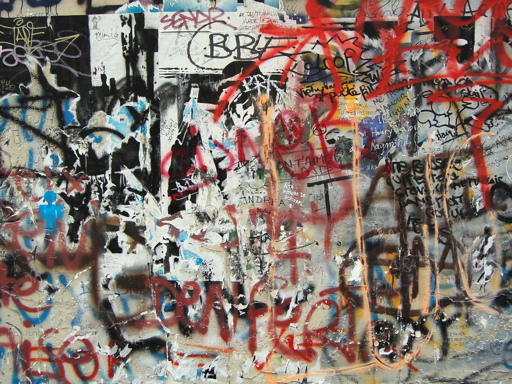July 08, 2005
Poetry Blogs: Helping Poets Google Themselves For Over 30 Months

It's hard to engage his Henry Gould's political thought, as it's hard for me to engage the political thinking of anyone who seems to think that "1989" changed the fundamental conditions described by many, including Karl Marx and Adam Smith (what a relief, to have a pseudo-official EventŪ which lets one off the hook of thinking the basic relations between people who own shit and people who don't own shit but their labor. As the Retort collective said about the images of 9/11, How much of the real dynamic (and pathology) of American power is conjured away by pinning it thus to a single image-event -- in much the same way that American victory in the Cold War was rendered in retrospect magical, unanalyzable, by the mantra "Fall of the Wall?")
But one of the wonders of "art" or something, is that such differences don't demolish the possibility of engagement otherwise. This is a long way of saying that, finallly (I need tranquility for reading more than writing), I have had a chance to sit down with The Hat, authors A-M, and I like Henry's poem, the third part of Dove Street. For every Leonardo there's an ocarina, and there's something salutary about taking the shape I associate, for the last decade, with Alice Notley's "White Phosphorus" and Descent of Alette (Lisa Lubash takes up a version of this as well, though Dickinson'd a bit) and leaning it back toward a romantic interior.
The poem features a cameo by Mary; Christian ghosts flit in and out of Hat poems far more frequently than I might expect, including the repeated apparitions of Jesus, God, "virgin blue," tabernacles, devils and angels and etc in the poems of Tanya Larkin -- poems I love, though my sense is that the Christic array is the least of it, setting conceptual horizons on a verbal imagination that might otherwise tango off into even thrillinger distances. I shall also admit, since no one else has, that I find "Pet Names," by Mary Donnelly, finely adorable, couplets three and nine especially. But of course, nothing is happier-making than Ange Mlinko, line by line and poem by poem and then just casually planting a panache and an earache in tandem as if they rhymed, which they do, just as in the following couplet, it turns out that life rhymes with French. Which it does! Chapeau!
Posted by jane at July 8, 2005 09:28 AM | TrackBack